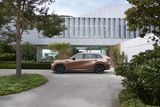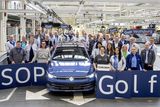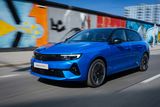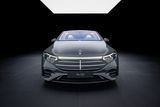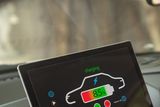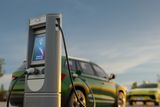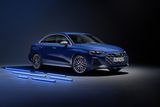Electric cars: ESB charges remain 'on hold' amid calls for scrappage, BIK cuts and 17,000 taxi deal
Electric cars in focus...
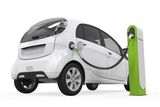
Plans to bring in charges for electric vehicles next month remain 'on hold' amid calls for a new government drive to kick-start sales.
The ESB was to have brought in charging bills for some owners in January but that was postponed.
The same will apply to other charges originally planned for next month.
There was widespread outcry and criticism of the proposed moves at the time.
An ESB spokesman re-affirmed to 'Independent Motors': "The plans for fees have been put on hold for the moment."
He said the ESB is in discussions with the Commission for Energy Regulation (CER) on the completion of the 'Electric Vehicle pilot project'.
"In the meantime, things are remaining as they were and we are continuing to make charging available for all EV customers at no cost.
"We are also continuing to provide a free home charger to qualifying purchasers of a new EV."
It is not known what the next step will be following the ESB's 'discussions'.
There had been concern that from January last new customers faced a €16.99 month fee for unlimited access to low-speed one-phase charging points nationally.
It was initially announced also that all customers would have to pay an extra 30c/minute on the fast charging points from next month.
That's not going to happen either - for now. And new customers will continue to get a free home charger - for the moment at least.
There have been fears that as soon as 2,000 EVs are sold new charging options would kick in. Against that backdrop several motor industry executives, in response to queries from 'Independent Motors', have called for a range of initiatives to boost electric-vehicle sales.
They include a special scrappage scheme, abolition/reduction of BIK and the creation of 17,000 electric taxis.
As things stand, electric cars (EVs) are not exactly sweeping up sales: figures for the start of the year show a marginal increase.
It is not the sort of year-on-year progress to justify the hoopla generated by successive governments who raised the prospect that 10pc of new cars would be electric by 2020.
But politicians continue to talk about the need to do something on emissions and the environment without necessarily doing an awful lot.
In fairness, we have generous VRT rebate and grant schemes which knock €10,000 off what would otherwise be prohibitive prices for electric cars.
But do enough people know about it? And are there other, less costly, incentives that can be added to create real momentum?
From talking to those in the motor industry, there are core proposals they believe can make electric cars a more viable option for lots more people.There is no avoiding the obvious, however. Electric cars are still dogged by old concerns over range anxiety, initial cost and regularity (and potential cost) of charging.
Despite that there has been a modest rise in registrations this year as well as recognition that there is a genuine future for smaller electric commercials in urban environments too.
One thing that comes through from those sellings EVs here is how pleased they are with increased awareness - if not sales as yet. Awareness, they stress, is a precursor to increased purchasing.
I asked four companies - Nissan, Renault, BMW and Volkswagen - for their views on what's happening in the market place, what's likely to happen and what they'd like government and policymakers to do.
There was broad agreement on what is needed to kick-start more widespread use of electric cars.
Nissan's James McCarthy, whose LEAF is by far the biggest EV seller in Ireland, says they are 'very happy' with the levels of sales and enquiries so far this year. "The trend to date suggests volumes will increase by 50pc this year." He reveals there is even a 'short waiting list' for their new 30kwh LEAF.
There has been a move away from the "early adopter" type consumer - to a more mainstream audience. "LEAF buyers and enquirers are now fitting into the typical hatchback family car-buyer profile - we're seeing increasing enquiries from Golf, Auris, Pulsar, Focus drivers."
What more can be done? "Loads." Nissan would like to see three key measures brought in:
Ω No Benefit-in-Kind (BIK) on electric vehicles used for business purposes.
Ω Have at least 17,000 taxis as electric vehicles.
Ω Allow use of bus lanes, free parking and remove tolls for all electric vehicles.
In December the Government published a White Paper identifying actions to reduce our energy-related carbon emissions by between 80pc and 95pc (1990 v 2050 levels). It proposed a scrappage-type scheme for older taxis being replaced by electric vehicles.
"We very much welcome and look forward to the implementation of this proposed initiative," Mr McCarthy concludes.
Patrick Magee, Country Operations Manager, Renault Ireland says they are happy to see awareness of EVs has significantly increased. Realistically, he says, awareness is key.
"Customers have lots of questions still on range and infrastructure. We are happy with the current level of take-up but we can see the increase coming."
In 2015 electric vehicle (EV) sales accounted for 0.4pc of the market. That's under 500. "We believe it will come close to 1,000 registrations this year," he forecasts.
They have seen a "strong push" from cost-conscious urban business owners.
What more can be done? "We have massive targets to achieve by 2030 and the transport industry needs to be the leader in achieving them."
He adds: "What would help hugely is to remove BIK on company fleet electric vehicles, have a stronger grant system on the purchase of electric vehicles and a scrappage scheme centred on just EVs." This would involve getting an allowance to scrap older cars for electric vehicles.
BMW's Michael Nugent says they sense electric cars in general are becoming more the norm as concerns such as range anxiety diminish.
Up to now it has been the 'early adopters' who bought such cars but there is a swing towards more mainstream customers.
He points out: "Early customers tended to be more mature and likely to be financially robust for whom it was easier to take a 'risk' on purchasing such new technology (bearing in mind that this was when the economy was at a low ebb)."
Now there is a broader cross section - older couples trading down and younger families looking for a practical family car.
What more can be done by carmakers and politicians to make electric cars more attractive to buyers?
He sees "a couple of quick solutions" which have worked in other markets:
*Reduce BIK on hybrids and remove it on pure electric vehicles.
* More certainty on the grant issue.
Expanding on the latter Mr Nugent claims: "The current system is hopelessly complicated. It should be consolidated into additional VRT relief with a 5-year time frame whereby everyone can see the landscape ahead. If the VRT relief were to be gradually removed over the final three years of the programme, then it would encourage customers to commit sooner which would be in everyone's interest."
However, he believes topics such as free use of the bus lanes and free parking are at this stage unworkable and a distraction.
In conclusion: "What would be useful in the medium term is a commitment to identify the vehicle as either a hybrid or fully electric car in the national car register so that in time, as the authorities move to more online systems, it will be possible to offer benefits such as free tolls and use of the bus lanes, etc."
Paul O'Sullivan of Volkswagen says his company would fully support Volvo's recent proposals for a universal charging unit to remove confusion for drivers.
He told Motors that he believes there is a real future for electrics. hybrids and plug-in hybrids over the coming years.
Join the Irish Independent WhatsApp channel
Stay up to date with all the latest news

